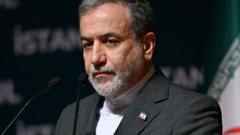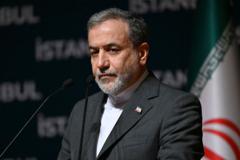Amid a complex geopolitical landscape marked by military triumph and political turmoil, Prime Minister Benjamin Netanyahu's leadership is challenged by dwindling trust from the Israeli electorate, who question the motives behind the continuing conflict.
**Netanyahu's Victory Over Iran: A Trust Deficit Among Israelis Emerges**

**Netanyahu's Victory Over Iran: A Trust Deficit Among Israelis Emerges**
In the wake of military successes against Iran, Prime Minister Netanyahu faces skepticism and calls for an end to ongoing war efforts from many Israelis.
Despite declaring victory in military engagements against Iran, Prime Minister Benjamin Netanyahu is encountering significant skepticism among Israelis about his leadership and motives. Following a controversial decision to reject a ceasefire deal earlier this year, which would have seen hostages exchanged and a gradual troop withdrawal from Gaza, Netanyahu orchestrated a resumption of combat operations against Hamas. This strategy, while aiming for a decisive victory against what he termed "terrorism," has resulted in widespread outrage, particularly among families of hostages.
Public sentiment reflects a growing desire for peace; latest polls indicate that 59% of Israelis want the conflict to cease, prioritizing the return of hostages over military objectives. Only about 49% of survey respondents believe Netanyahu is linked to the ongoing violence for political gain, leading to a stark decline in his popularity. Professor Tamar Hermann, of the Israel Democracy Institute, emphasized the significant trust deficit confronting Netanyahu, noting that he does not have the backing of even half the population.
While Netanyahu contemplates calling for early elections, his position remains precarious, particularly as his party struggles to maintain a coalition in the fragmented Knesset. The shadow of ongoing corruption charges against him adds another layer of uncertainty to his political prospects. Despite characterizing his legal troubles as a politically motivated “witch hunt”, public opinion about his leadership is increasingly divided.
Complicating matters is the intervention from former U.S. President Donald Trump, who recently called for a cancellation of Netanyahu's corruption trial, a move that has raised eyebrows among Israeli observers who view it as interference in domestic affairs. The Israeli political landscape remains volatile as the war continues, with many questioning whether elections can realistically happen while hostages are still held and military action persists.
In summary, while Netanyahu has achieved military successes against Iran, the underlying frustration and distrust among Israelis regarding his leadership and motivations pose a significant challenge to his continued governance. The situation remains fluid and uncertain, as domestic and international pressures converge on the prime minister's administration.
Public sentiment reflects a growing desire for peace; latest polls indicate that 59% of Israelis want the conflict to cease, prioritizing the return of hostages over military objectives. Only about 49% of survey respondents believe Netanyahu is linked to the ongoing violence for political gain, leading to a stark decline in his popularity. Professor Tamar Hermann, of the Israel Democracy Institute, emphasized the significant trust deficit confronting Netanyahu, noting that he does not have the backing of even half the population.
While Netanyahu contemplates calling for early elections, his position remains precarious, particularly as his party struggles to maintain a coalition in the fragmented Knesset. The shadow of ongoing corruption charges against him adds another layer of uncertainty to his political prospects. Despite characterizing his legal troubles as a politically motivated “witch hunt”, public opinion about his leadership is increasingly divided.
Complicating matters is the intervention from former U.S. President Donald Trump, who recently called for a cancellation of Netanyahu's corruption trial, a move that has raised eyebrows among Israeli observers who view it as interference in domestic affairs. The Israeli political landscape remains volatile as the war continues, with many questioning whether elections can realistically happen while hostages are still held and military action persists.
In summary, while Netanyahu has achieved military successes against Iran, the underlying frustration and distrust among Israelis regarding his leadership and motivations pose a significant challenge to his continued governance. The situation remains fluid and uncertain, as domestic and international pressures converge on the prime minister's administration.




















